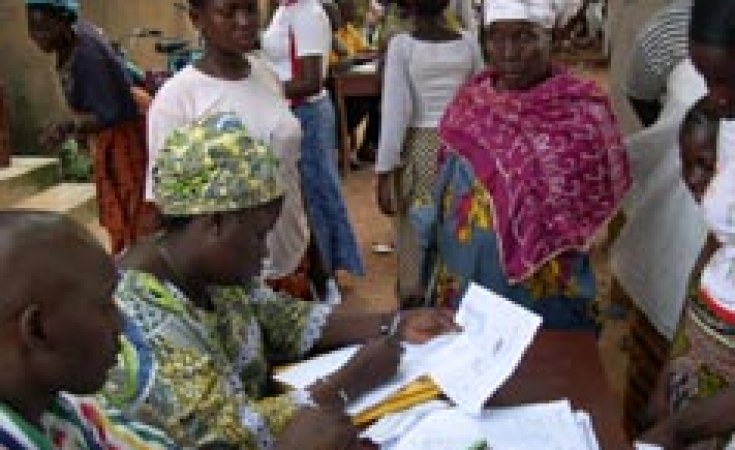President Laurent Gbagbo will face longtime rival Alassane Ouattara in a run-off vote later this month after neither candidate won more than 50 percent of the vote in Sunday's election, according to news reports.
The Independent Electoral Commission said Gbagbo won 38 percent compared to 32 percent for Ouattara. Former president Henri Konan Bedie won 25 percent. Bedie, who was overthrown in a coup in 1999, said the polls were rigged and called for a recount. The constitutional court must now approve the final tally.
International observers have urged the candidates to accept the results of the election, which had been postponed six times. There were fears that disputes over the polls could lead to unrest. Cote d'Ivoire, once a beacon of stability in the region, has been in a state of intermittent upheaval since 1999.
European Union observers on Tuesday had raised concerns about ballot counting, saying monitors had been barred from some polling centers and that results had been delayed. But overall, international election monitors said the vote was largely credible. Turnout was estimated at 80 percent, one of the highest rates recorded in Africa, the BBC cited one observer as saying.
The United Nations Security Council on Wednesday issued a statement commending the Ivorian people "for their massive and peaceful participation in this crucial vote, which represents a historic step towards the restoration of sustainable peace in Cote d'Ivoire.
But they urged "all stakeholders to continue to be fully committed to a democratic, peaceful and transparent completion of the electoral process … and stressed the central and critical role of the Independent Electoral Commission in proclaiming the provisional results of the vote as expeditiously as possible," said Mark Lyall Grant, council president. "They further urged the supporters of the candidates to refrain from any provocation or recourse to violence throughout the electoral process."
United Nations and French peacekeepers are helping oversee the unfolding of the election and the post-election period.
In elections in 2000, coup leader Robert Guei claimed to have won but a popular uprising forced him from power. Gbagbo was declared the winner of the poll but Ouattara, who had been barred from running, disputed the results. Elections scheduled subsequently were postponed six times.
This week's election and the possible run-off are considered a test as to whether Ivorians are prepared to move toward a peaceful future. The nation was divided between the rebel-held north and government-run south until a peace accord was signed in 2007. However, rebels and former government-backed militia have yet to disarm.


